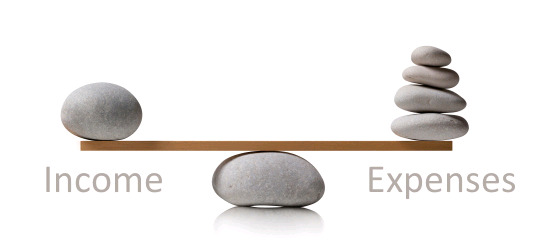Having a balanced personal budget has many advantages. The biggest is the possibility of staying debt free by keeping close track of your income and spending. For an average person without much knowledge of finance and accounting it can get hard to be on top of everything that goes on with personal of family budget. Let’s consider
Advantages of Balancing Your Personal Budget
Having a personal budget is more than just having a piece of paper outlining your expenses. A budget allows you to monitor your finances and take control of everything. When everything is balanced, you can pay off your debts and buy what you need without any worrying of whether everything is covered. It is pretty common to catch financial errors like double charges and incorrect banking fees. Paying attention to these errors gives you the opportunity to get your money back. Each of those benefits leads you to only one thing: no more debt. You will notice your life change by being more calm and being less worried when you have a budget to rely on.
How To Create A Balanced Budget
A balanced budget means that you have aligned your habits to use your money the right way. In other words, you will know how to spend the right amount of money so that it doesn’t outweigh your current earnings. There are actually many software solutions online that can help you with this. However, you will find that a notebook, pencil, and an ordinary calculator could do the trick. Bring all of those tools together and your purchased receipts, credit card statements, car financing bills, and all the other bills that you may have. The next step is to write down every single expense needed.
Once you have outlined all of the main expenditures, you need to start adding a new heading or column. In these areas, you need to list each of your different spending needs. For example, you would write down your insurance, groceries, car payments, gas, and anything else. By doing this, you now have a possible list of where you will be putting your money.
The next step is to decide which ones are the real things that you need and the ones that you do not need. The real things that you need are shelter, food, water, transportation, and clothes. The things that you do not need are designer clothes, going to the movies, gym memberships, and even eating out at restaurants often. Remember, nothing is wrong with sending money on the extras, but making the real things a priority is very important.
Once the above is completed, it is time to find out where your reliable salary comes from. You can include everything, from your child support to your ordinary salary from work. If you have some reliable stock dividends that are consistent, then feel free to add them here. Make sure to add up the complete amount of money you can rely on.
Write down the total monthly cost of what you need and remove that from your overall income. If the unfortunate happens and the overall cash flow is negative to your needs, then you need to change your habits on what you buy. Maybe you should try to remove all of those extra luxurious in your life?
If the positive happens and you have a balanced budget, then good for you. So, instead of using all of the money, put it away and place it in your savings account for big money in the future. You can maybe even use that money for your children’s college funds, investments, or even for your retirement. You have your whole life ahead of you, so keep this in mind. Don’t forget to possibly use that extra money to pay off all of your debt. Doing this will enable you to save the extra cash you get in the future.
This article posted by Sherin Dev+ of Investinternals.com

